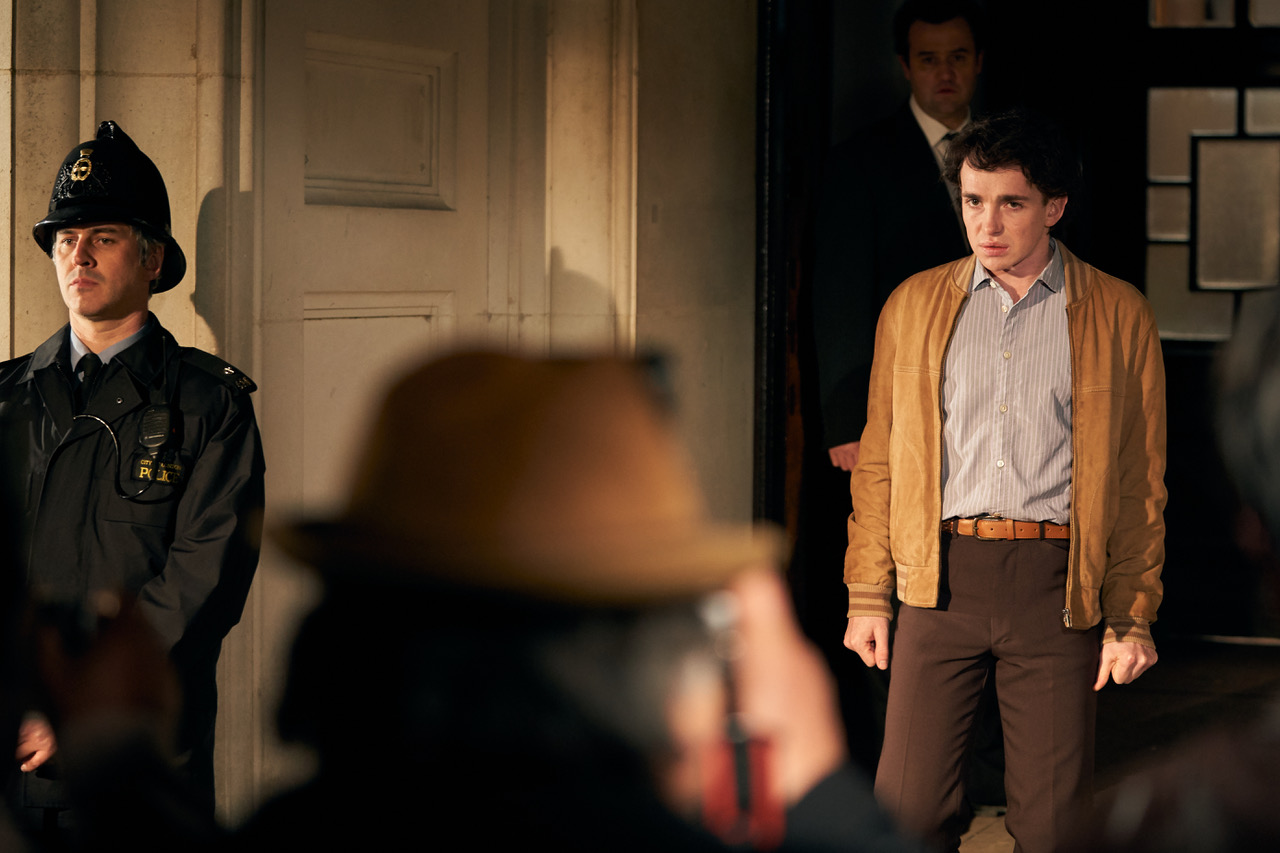‘Des’: David Tennant stars as serial killer Dennis Nilsen in new ITV drama
The show’s creators hope to honour the memory of Nilsen’s victims after years of “misinformation and mistruths.”
David Tennant brings to life the notorious serial killer Dennis Nilsen in upcoming ITV drama, Des – and the show’s creators are determined to serve long-overdue justice to the victims.
For five years, between 1978 and 1983, Nilsen went undetected as he preyed on and murdered as many as 15 boys and young men he met on the streets of Soho, playing the part of the kindly stranger by offering them food or lodgings for the evening at his flat in North London.
On 9 February 1983, the civil servant was finally arrested for his grisly crimes, after human remains were discovered in a blocked drain leading from his property in Cranley Gardens in Muswell Hill.
Doctor Who favourite Tennant didn’t have any reservations about signing on for the series, which is told from the perspectives of Nilsen, detective Peter Jay (Daniel Mays) and Brian Masters (Jason Watkins), who wrote a biography about Nilsen, titled Killing for Company.
“I’d read Killing for Company many years before, partly because I lived just down the road from Cranley Gardens so it felt like local history,” he says. “A couple of people had [also] said, ‘Ooh, he [Nilsen] looks a bit like you.’”
“These stories, it’s tricky to get the balance right. You want to tell it with appropriateness, you want to tell it with sensitivity, you don’t want to slip into sensationalism, which would be easy to do and wouldn’t serve the victims of this.”
Detailing a murder investigation in reverse to discover who the victims were – Nilsen confessed to the killings, but claimed he couldn’t remember their names – Des aims to right the wrongs of the media at the time.
The victims were vulnerable people who had slipped through the cracks of society in Thatcher’s Britain: many were homeless teenagers, drug addicts and those who just wanted company for a night.
However, filtered through the homophobic lens of the ‘80s, they were characterised and ultimately vilified as male prostitutes – the three-parter raises the question of what part prejudice played in how Nilsen was able to literally get away with murder for so long.
“That’s what piqued Brian’s interest,” Watkins reveals. “He was appalled at the way that certain elements of the press had inferred that somehow the dysfunctionality of the murder is akin to the deceit and dysfunctionality of being homosexual.”
Indeed, one man who survived an attack – he awoke in Nilsen’s home, tied to a chair whilst being strangled with his own tie – alerted police, but was ignored by officers who believed Nilsen’s explanation that the incident was merely “a homosexual lover’s tiff.”
Meanwhile, episode three of Des shows survivor Carl Stotter, a drag artist, being verbally attacked and spat at by the public while leaving court after testifying against Nilsen – who died aged 72 in 2018 – during the trial.

“A lot of mistruths about the victims and a lot of mistreatment of them and their families [existed] at the time because of the prejudices that existed in ’83, and those prejudices meant this narrative had been skewed somewhat for the last 35 years,” writer Luke Neal explains.
“It became quite a duty of ours, [director] Lewis [Arnold] and I, in developing the script that we right some wrongs and actually corrected some of those mistruths.”
“Everybody you speak to about this thinks they know about the case and they have certain assumptions, it might be about the victims and who the victims were,” Arnold continues.
“Lots of people assume these were young gay men who went home with him for whatever reason, but the reality is, I think that only a small percentage of them were gay – most of them were a victim of the time, before they even became a victim of Nilsen.”
Pointing out the parallels between then and now, where homelessness is on the rise, the pair hope Des really hits home with viewers.
“You walk the streets of London and homelessness since I’ve been living there has increased exponentially over the years. There could be someone easily preying on those vulnerable people,” Arnold continues.
“We need to make sure that someone like Dennis Nilsen isn’t able to get away with something like this again,” Neal adds.
“There are certain steps we and the government can do in order that poor people who are on the streets, that find themselves a victim of poverty, are given the help and the humanisation.”
Des starts tonight (Monday 14 September) at 9pm on ITV. ITV have also created a charity partnership with Stonewall Housing, to tackle LGBTQ homelessness.
